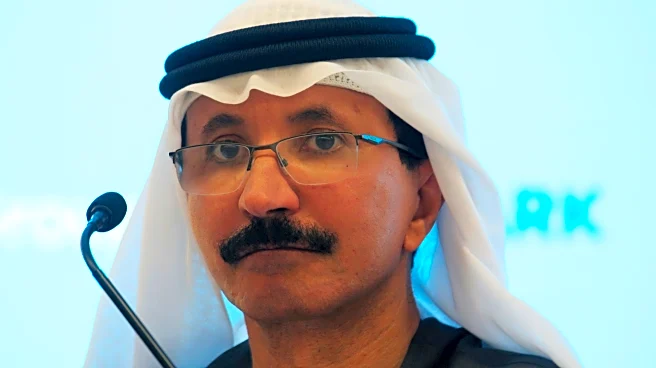What's Happening?
Ukrainian veterans are demonstrating remarkable resilience and adaptation as they recover from injuries sustained during the ongoing conflict with Russia. Many veterans, like Serhiy and Artem, have overcome
severe injuries and are reintegrating into society, with some even returning to the front lines. Ukraine has become a leader in prosthetics and rehabilitation, providing advanced care to thousands of amputees. The mental trauma faced by veterans, including those who were prisoners of war, remains a significant challenge as they navigate civilian life.
Why It's Important?
The resilience of Ukrainian veterans highlights the human cost of the conflict and the importance of comprehensive rehabilitation and support systems. Ukraine's advancements in prosthetics and rehabilitation could serve as a model for other nations dealing with similar challenges. The mental health struggles faced by veterans underscore the need for robust psychological support and community reintegration programs. The ongoing conflict continues to impact Ukrainian society, with veterans playing a crucial role in the nation's defense and recovery efforts.
What's Next?
As the conflict persists, Ukraine will need to continue investing in rehabilitation and support for veterans, ensuring they can lead productive lives and contribute to society. The integration of amputees into military units, particularly in roles involving drone warfare, may become more common, reflecting the changing nature of combat. The international community may look to Ukraine's rehabilitation efforts as a model for supporting veterans in other conflict zones.
Beyond the Headlines
The cultural and societal implications of the conflict are profound, with veterans serving as symbols of resilience and national pride. The adaptation of military tactics to include amputees reflects broader shifts in warfare, emphasizing technology and remote operations. The psychological impact of the conflict on veterans and civilians alike highlights the long-term challenges of post-war recovery and the need for comprehensive support systems.










